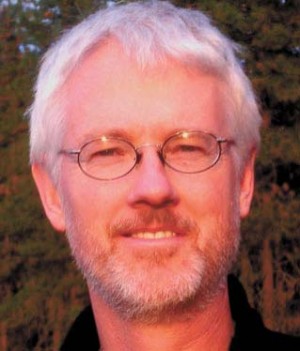Campus Events
Pulitzer-grantee and WSU professor Chilson to speak Tuesday
Within four days of arriving in the West African country of Mali last April, a Washington State University professor’s mission of writing about newly-formed borderlands shifted to covering the takeover of the country by jihadi fighters.
Professor of English Peter Chilson, one of the few Western reporters to have witnessed the ongoing civil conflict in Mali, will speak at Washington University Tuesday evening. Sigma Iota Rho (SIR), the University’s International and Area Studies honorary, has worked in conjunction with the Pulitzer Center on Crisis Reporting, a Washington, D.C.-based media organization that sponsors independent reporters, to bring the Pulitzer grantee to campus.
“We may be able to read news articles about Mali, but there is a different perspective to be gained from listening to someone speaking in person,” SIR President Senior Ethan Lynch said. “With Mr. Chilson, we can actually ask questions and gain personal perspective and interpretation.”
Chilson landed in Mali a month after a military coup d’etat ousted the president. The government had been fighting Tuareg rebels, who sought the independence of northern Mali and seized control of capital city Bamako during the coup. Chilson was near Bamako when conflict broke out in the Malian army, with some groups of soldiers trying to reverse the coup. “I found myself trying to grapple with a confusing situation that I wasn’t exactly sure how to handle at the time,” Chilson said. “But I let my curiosity carry me, and while the fighting was going on I was able to do some reporting.”
Today, the conflict in Mali is far from over. Following the Tuareg rebels’ declaration of an independent state, jihadi fighters joined in controlling the capital. Recognizing that the al-Qaida acquisition of northern Mali put al-Qaida closer to Europe than it had previously been, France intervened militarily in the end of January 2013.
Senior Molly McGregor was studying abroad in Mali last March when the coup occurred and forced her to evacuate. She supports the military intervention by the former colonizers of Mali. “I am hopeful about the success of the French intervention from a counterterrorism standpoint,” she said. “Problems in Mali have regional and global consequences. I wish for the safety and stability of Malians.”
In terms of how Malians themselves view the conflict, McGregor said that the responses were mixed. “In the capital, it seemed like I heard every possible opinion,” she said. “Some thought the coup was good because they believed the government to be corrupt. Others were much more wary about the coup and thought it set them back 10 years.”
The current situation remains tense as the French await the rebels’ next move. “The war is not over,” Chilson said. “The jihadist forces have retreated but they will want to launch an insurgency. It is hard to predict what form it will take, but it is going to be bloody.” McGregor also expressed concerns about the future of Mali. “If the French don’t want to stay [in Mali] very long, I’m afraid that the country will descend quickly into chaos when they leave,” she said. “No one wants to see terrorist activities gain power, especially the Malians. But it’s still a long process of development in the future.”
In the meantime, Chilson emphasized the importance of being aware of the situation in Mali. “This awareness is very important to students as they graduate and make their way in the world,” Chilson said. “If they travel, they are more effective travelers. In the workplace they are more astute. The result is more mature decisions and more effective human beings.” In his talk, Chilson hopes to convey a sense of Malians’ lives and culture. “I am going to try to give a sense of what Mali is like on the ground,” he said. “It’s important to know what the people are like and the history that has created the situation.”
Coordinator for International Programming Sara Baker said she believes Chilson’s distinct perspective will enhance the global awareness of attendees. “I hope Wash. U. students get a contemporary academic look and a productive discussion about what’s going on in Mali,” she said. “We need to be aware of this situation as we go forward as global students of the University.”
Chilson’s talk will occur Tuesday in Seigle Hall, Room 104 at 5:30 p.m. and is expected to last an hour. A question and answer session will follow.

